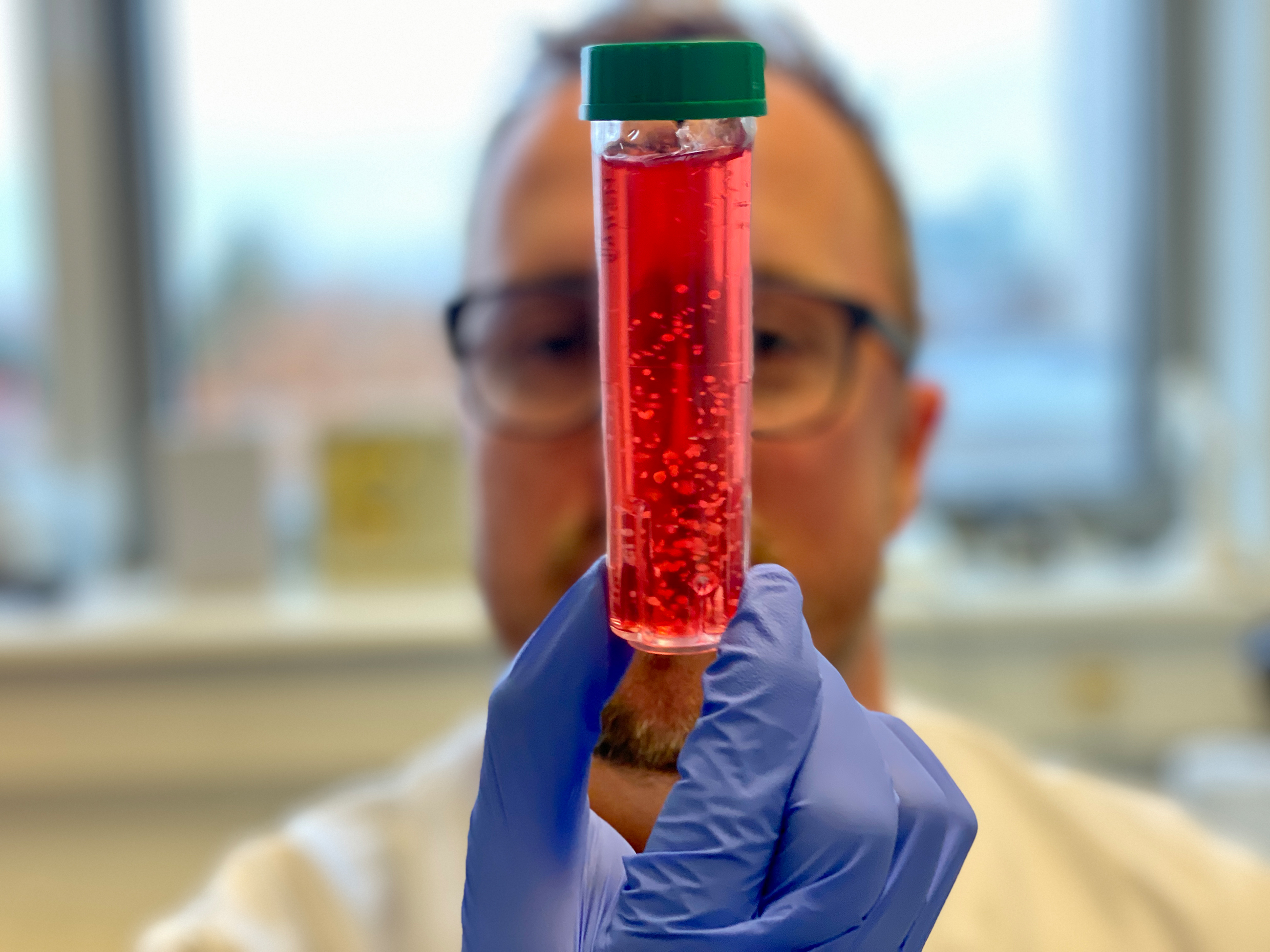MHH researcher Professor Dr. Nico Lachmann receives 2.5 million euros for Fraunhofer-Attract group

Professor Dr. Nico Lachmann uses novel reactor vessels that can produce human immune cells on a scalable scale. Copyright: "Marco Oliveira".
08.12.2022
Immune cells and immune cell preparations are playing an increasingly important role in modern medicine. Professor Dr. Nico Lachmann, research group leader at the Clinic for Paediatric Pneumology, Allergology and Neonatology at Hannover Medical School (MHH) and researcher of the RESIST Cluster of Excellence, wants to use standardised immune cells to test the efficacy and safety of drugs. For this project, he is also building the project "IMMUNITY - Designer Cells: New immune cell platforms for health research", which is being supported by the Fraunhofer-Gesellschaft's Attract funding programme with 2.5 million euros for five years. The Attract working group is based at the Fraunhofer Institute for Toxicology and Experimental Medicine ITEM.
Standardised production of mature immune cells
The demand for human immune cells is high and growing daily. So far, however, it has been difficult to provide cells in suitable quantity and quality, because every person - and thus every immune cell donation - is different. "This is a major problem for the health industry and massively slows down innovation," Professor Lachmann points out. In order to meet the steadily growing demand, biomedical research is therefore trying to obtain and multiply human immune cells through novel bioprocesses. The Attract group leader and his team have already laid a foundation stone. They are using the properties of so-called induced pluripotent stem cells (iPSCs). These are biotechnologically "reprogrammed" cells with the property of being able to divide indefinitely and develop into any desired body cell. The researchers have succeeded in producing mature immune cells such as macrophages in scalable systems - i.e. from small scale in the laboratory to industrial use.
"This method of standardised production of immune cells from iPSC is a great asset for researching and evaluating drug candidates because we can test their efficacy and safety directly on the human targets," says the scientist. The construction and testing of these tests will be advanced within the Attract group. In addition, certain test systems are to be set up to measure the potency of biological and biotechnological drugs. These so-called cell-based potency assays play an essential role in the quality control and release of active substances and drugs. Based on this key technology for the continuous production of macrophages from iPSC, Professor Lachmann's team also wants to develop new manufacturing processes for different fully standardised immune cell products and cell-based immunotherapies within the project.
Designer immune cells can be used in many ways
And the potential of such designer immune cells is huge: for example, they can be genetically modified to light up when they detect impurities in drugs. Up to now, these have been very difficult to detect. Artificial skin tissue, on which cosmetics are already being tested today, could - enriched with immune cells - reproduce the reactions of a human organism even better. It would also be conceivable to test the air quality with such cells, because when we breathe in, it is macrophages and other immune cells that react first to pollutants in the air. It is important to Professor Lachmann that his research finds its way from the laboratory to the clinic. "An idea only becomes an innovation when it is put into practice."